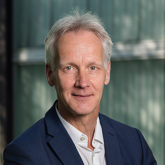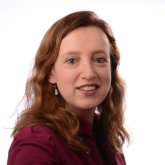EngD position: Inspection and Maintenance Methodologies for Rail Defects
The Chair of Dynamics Based Maintenance within the Faculty of Engineering Technology has an opening for an EngD position focused on developing a tool to improve the coordination between railway inspection techniques and corrective maintenance methods to optimize defect management and minimize unnecessary rail replacements.
The Challenge
Maintenance of railway assets is if vital importance to ensure safe and cost effective operation. This is in particular valid for intensively used railway networks such as those in The Netherlands. Intensive use increases wear and hence the need for maintenance, while at the same time, it limits the available time for maintenance operations, or inevitably causes disruptions of the normal operation that should be kept to a minimum. Various inspection techniques are applied, ranging from manual inspections to Eddy current and ultrasound based inspections and various maintenance techniques (grinding, milling, replacement) are available.
The main scientific challenge in this project is that a thorough understanding of the different inspection techniques as well as the possible maintenance techniques is required to align both and realize the right conditions to implement them in a maintenance planning system. Lacking experience with these methods in field applications is contributing to the challenge. In addition, it is unknown what the effects are of changes in type of maintenance intervention (grinding, milling, replacement) in the long run. Finally the insight in conditions under which an optimized maintenance intervention strategy, including the question which inspection technology to use when, can be obtained is limited. These are fundamental challenges.
Your role:
- Participate in cutting-edge research and design under the guidance of leading experts in the field.
- Evaluate inspections systems: evaluate and assess the accuracy and reliability of both train-borne and manual inspection systems.
- Analyse maintenance processes: review and analyze current procedures for defect assessment and investigate the opportunities of modern corrective maintenance techniques.
- Develop a Defect Management Framework: categorization of defects and support for decision making of maintenance interventions based on the defect categorization.
- Evaluate the designed framework and propose updates to RLN00399: provide recommendations for updating the RLN00399 guideline and ensure the frameworks supports updates of the guideline reflecting the integration of advanced inspection technologies and modern maintenance practices.
- Collaborate with an interdisciplinary team, including members from the University of Twente and the industrial partner ProRail.
- Actively engage in field inspections to gain necessary insights in the daily practice of inspection and maintenance interventions.
- Work regularly at the ProRail office in Utrecht, The Netherlands.
Information and application
Please submit your application before May-1st, 2025, using the "Apply now" button, and include the following:
- Curriculum vitae
- Letter of motivation
- Transcripts from your BSc and MSc courses
- IELTS or TOEFL score
- Contact information of 2 references
First (online) interviews will be held on mid-May 2025.
For more information, you can contact Dr.Ir. Richard Loendersloot via phone: +31 53 489 4463 or email: r.loendersloot@utwente.nl.
About the organisation
The Faculty of Engineering Technology (ET) engages in education and research of Mechanical Engineering, Civil Engineering and Industrial Design Engineering. We enable society and industry to innovate and create value using efficient, solid and sustainable technology. We are part of a ‘people-first' university of technology, taking our place as an internationally leading center for smart production, processes and devices in five domains: Health Technology, Maintenance, Smart Regions, Smart Industry and Sustainable Resources. Our faculty is home to about 2,900 Bachelor's and Master's students, 550 employees and 150 PhD candidates. Our educational and research programmes are closely connected with UT research institutes Mesa+ Institute, TechMed Center and Digital Society Institute.





